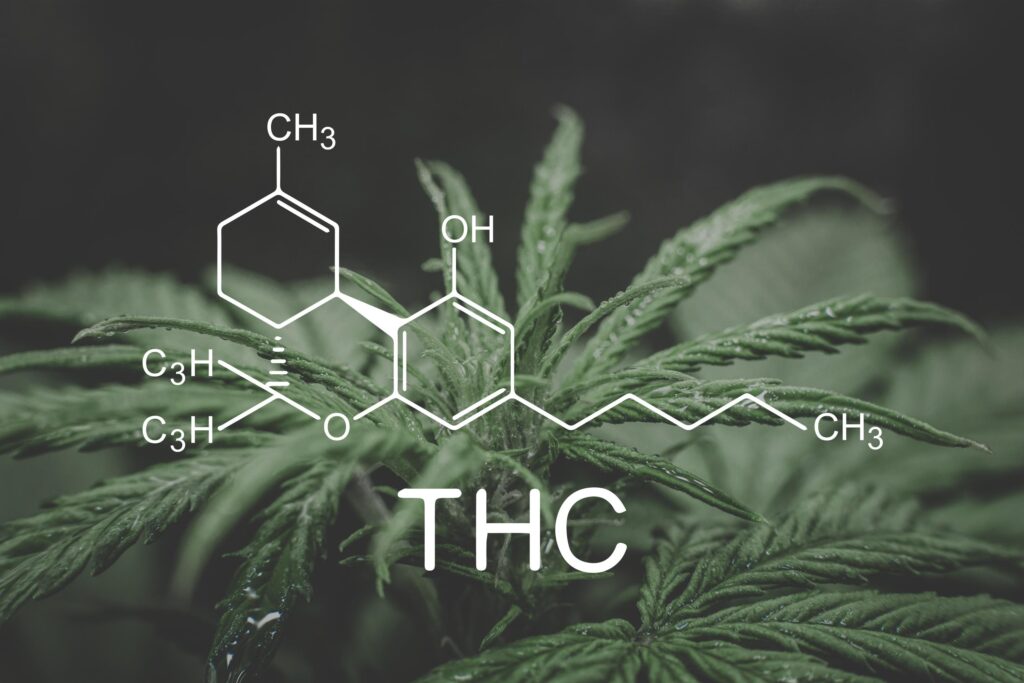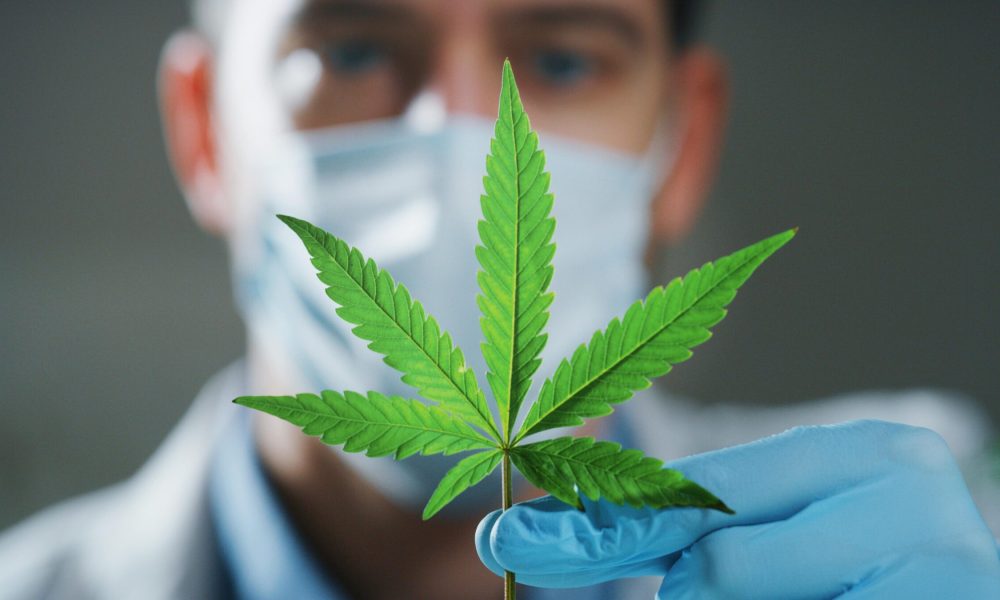In recent years, the conversation around cannabis has shifted from taboo to mainstream, largely due to its evolving legal status and growing acceptance in medical communities. At the heart of this transformation is THC, or tetrahydrocannabinol, the primary psychoactive compound found in cannabis. While often associated with the “high” from cannabis use, THC offers a range of benefits that go beyond recreational enjoyment. By diving into the science behind THC, we can better understand how it affects the body and mind and how it can be used for therapeutic purposes.
What is THC?
Tetrahydrocannabinol, commonly known as THC, is one of over 100 cannabinoids found in cannabis plants. Cannabinoids are chemical compounds that interact with the endocannabinoid system (ECS) in the human body. The ECS is a complex network of receptors, neurotransmitters, and enzymes that plays a crucial role in regulating various physiological processes, including mood, appetite, pain sensation, and immune response.
THC is unique because it is primarily responsible for the psychoactive effects associated with cannabis. It achieves this by binding to cannabinoid receptors in the brain and central nervous system, specifically the CB1 receptors. This interaction triggers a cascade of biochemical events that lead to the characteristic effects of THC, including altered perception, mood changes, and enhanced sensory experiences.

How THC Interacts with the Body
Understanding how THC interacts with the ECS helps explain its diverse effects on the body. The ECS comprises two main types of receptors: CB1 and CB2. CB1 receptors are mainly located in the brain and central nervous system, while CB2 receptors are primarily found in peripheral tissues and immune cells.
When THC binds to CB1 receptors, it influences various neurotransmitter systems, including those involved in pain modulation, appetite regulation, and mood control. Depending on the dose, individual sensitivity, and context of use, this interaction can have both beneficial and potentially adverse effects.
Pain Relief: THC has been shown to have analgesic (pain-relieving) properties. By interacting with CB1 receptors in the brain, THC can alter the perception of pain and reduce discomfort. This makes it a valuable option for managing chronic pain conditions, such as arthritis, neuropathy, and fibromyalgia. Clinical studies have demonstrated that THC can significantly alleviate pain and improve the quality of life for patients with these conditions.
Appetite Stimulation: One of the well-known effects of THC is its ability to stimulate appetite, often referred to as “the munchies.” This effect is beneficial for individuals experiencing appetite loss due to medical treatments or conditions like cancer, HIV/AIDS, or anorexia. THC’s influence on hunger signals can help patients maintain adequate nutrition and improve overall health outcomes.
Mood Enhancement: THC’s interaction with the brain’s reward system can lead to mood enhancement and relaxation. It promotes the release of neurotransmitters such as dopamine and endorphins, which are associated with feelings of pleasure and well-being. This makes THC a potential therapeutic option for individuals struggling with mood disorders, including anxiety and depression. However, it’s important to note that while THC can provide temporary relief, it may not address the root causes of these conditions and should be used under professional guidance.
Nausea Reduction: THC has antiemetic (nausea-reducing) properties that make it particularly useful for patients undergoing chemotherapy or experiencing severe nausea due to other medical conditions. By interacting with the brain’s vomiting center, THC can help reduce nausea and improve the ability to eat and maintain nutritional intake.

Cognitive Effects of THC
While THC has several benefits, it’s essential to understand its cognitive effects. THC can enhance sensory perception and creativity, making experiences more vivid and engaging. However, it can also impair short-term memory, attention, and coordination. These cognitive effects can vary based on the dose, individual tolerance, and method of consumption.
Moderate use of THC is less likely to result in significant cognitive impairment, while excessive use can lead to memory issues and difficulty concentrating. It’s crucial for individuals to be aware of these potential effects and to use THC responsibly, especially when engaging in activities that require focus and coordination, such as driving or operating machinery.
Therapeutic Benefits of THC
The therapeutic potential of THC extends across a range of medical conditions. Research continues to explore its role in various treatments, and evidence suggests that THC can offer significant benefits in several key areas:
Chronic Pain Management: THC is increasingly recognized for its efficacy in managing chronic pain. It can be used alone or in combination with other cannabinoids, such as CBD (cannabidiol), to enhance its pain-relieving effects. Patients with conditions such as neuropathic pain, multiple sclerosis, and cancer-related pain have reported significant relief from THC-based treatments.
Mental Health Support: THC’s ability to modulate mood and reduce anxiety makes it a potential treatment for mental health conditions. For individuals with anxiety disorders, PTSD, or depression, THC can offer temporary relief by promoting relaxation and reducing stress. However, it’s essential to use THC as part of a comprehensive treatment plan and to consult healthcare providers for personalized recommendations.
Neurological Disorders: Research is exploring THC’s role in managing neurological disorders like Parkinson’s disease and multiple sclerosis. THC’s neuroprotective properties and ability to reduce muscle spasticity can improve motor function and overall quality of life for individuals with these conditions.
Sleep Disorders: THC has been found to improve sleep quality by reducing the time it takes to fall asleep and increasing overall sleep duration. For individuals with insomnia or other sleep disturbances, THC can offer a natural alternative to pharmaceutical sleep aids.
Responsible Use and Considerations
While THC offers numerous benefits, responsible use is crucial. It’s important to consider factors such as dosage, method of consumption, and individual health conditions. Consulting with a healthcare provider can help ensure that THC is used safely and effectively, particularly for medical purposes.
Additionally, legal regulations surrounding THC use vary by region. It’s important to be aware of local laws and guidelines to ensure compliance and avoid potential legal issues. Whether for recreational or therapeutic use, understanding and adhering to legal standards is essential.
THC is a compound with a range of benefits for both body and mind. From pain relief and mood enhancement to support for chronic conditions and sleep disorders, THC’s therapeutic potential is becoming increasingly recognized. By understanding the science behind THC and its interaction with the endocannabinoid system, users can make informed decisions about its use and maximize its benefits.





